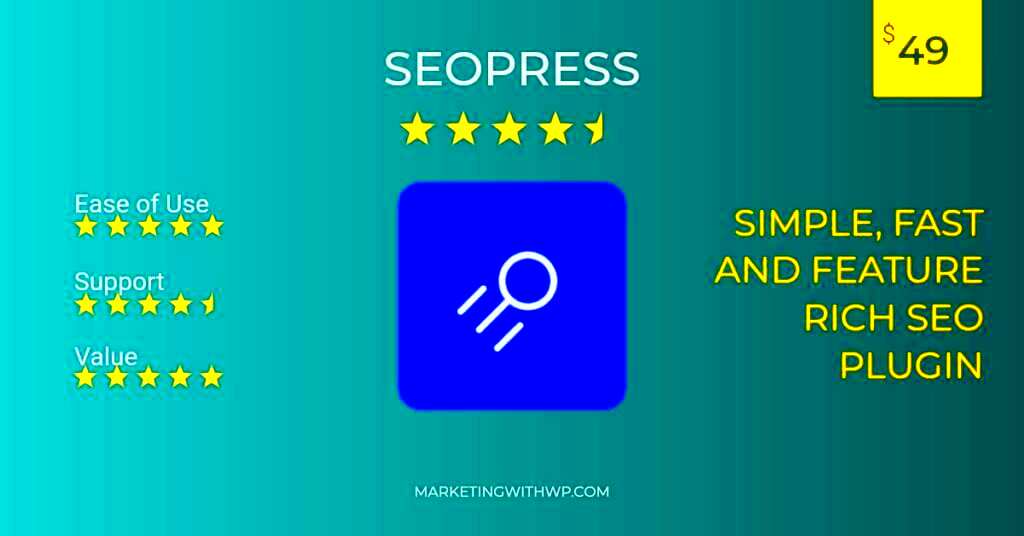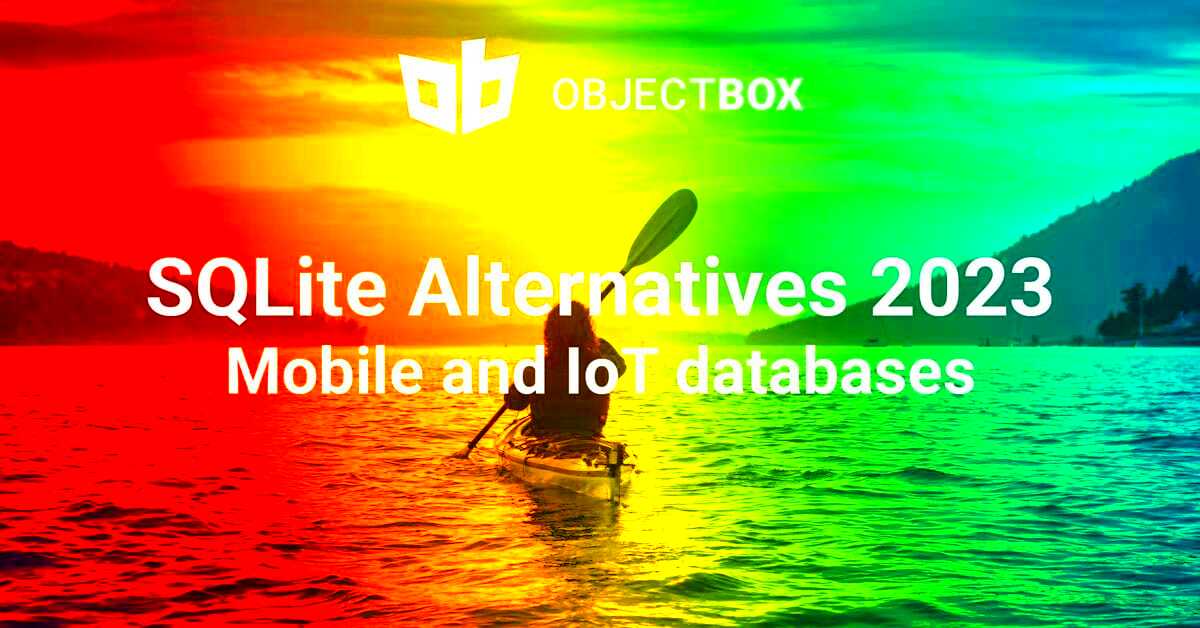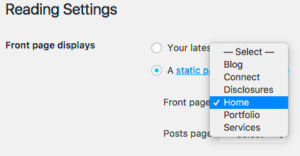If you’re diving into the world of website creation, chances are you’ve heard plenty about WordPress. While it’s undeniably popular, exploring CMS alternatives can unlock new possibilities for your project. In 2024, there are numerous content management systems (CMS) that cater to different needs, ranging from personal blogs to large e-commerce sites. Whether you’re looking for simplicity, specific features, or enhanced control over your web design, alternatives can provide unique advantages. Let’s take a closer look at why you might want to consider other options beyond the WordPress ecosystem.
Why Consider Alternatives to WordPress?

Choosing a content management system is no small feat. While WordPress has become the go-to platform for many, there are several reasons to consider alternatives. Here are a few key points to ponder:
- Performance & Speed: Some alternatives can offer faster page load times, crucial for user experience and SEO.
- Customization: Different CMS platforms may provide a more intuitive way to customize without the need for plugins, simplifying the design process.
- Security: Alternatives sometimes offer enhanced security features right out of the box or require fewer updates than WordPress.
- User Experience: Some users find other CMS platforms more user-friendly, reducing the learning curve for new users.
- Cost-Effectiveness: Depending on your needs, alternatives can be cheaper in terms of hosting, themes, and plugins.
Additionally, if your website’s purpose strongly aligns with features offered by a specific CMS, it might make sense to forgo WordPress altogether. For instance, if you’re developing an online store, platforms tailored for e-commerce may serve you better. Overall, the choice boils down to your unique requirements, and exploring alternatives ensures you find the best fit for your project.
Top CMS Options in 2024

As we step into 2024, the landscape of Content Management Systems (CMS) is evolving, offering an array of options for website creators, bloggers, and businesses. While WordPress remains a popular choice, many users are increasingly exploring alternatives that might better suit their specific needs. Here, we’ll shine a light on some of the top CMS options poised to make waves this year.
When choosing a CMS, it’s essential to consider various factors such as ease of use, flexibility, scalability, and community support. Here’s a list of promising CMS alternatives that are gaining traction in 2024:
- Joomla
- Drupal
- Wix
- Squarespace
- Ghost
- Magento
Each of these platforms has unique features and strengths, catering to different types of users — from small business owners to enterprise-level organizations. Whether you want a site that’s easy to build, an option for robust eCommerce capabilities, or something highly customizable for complex projects, these CMS options are worth considering.
Joomla: A Robust Choice for Complex Sites

Joomla has established itself as a powerful CMS particularly favored for its robustness and flexibility, especially for users who manage more complex sites. It’s an open-source platform, meaning it’s free to use and modify, making it a fantastic choice for developers looking to craft highly customized web solutions.
One of the standout features of Joomla is its extensive capabilities for managing multiple users and roles. This makes it a great option for businesses or organizations that need different levels of access for different team members. Here are some key highlights of using Joomla:
- Flexibility: Joomla supports a wide range of content types, from articles and blogs to more complex housing, eCommerce, and social networking functionalities.
- Advanced User Management: It includes built-in controls for user access levels, making it easier to manage content contributions from various users.
- Multilingual Support: Out of the box, Joomla offers strong multilingual capabilities, allowing you to create a website in multiple languages with ease.
- Strong Extensions: The Joomla community has a robust marketplace offering thousands of extensions and templates that can enhance your site’s functionality.
While Joomla might have a bit of a steeper learning curve compared to more beginner-friendly CMS options, its capacity for scalability and customization makes it a compelling choice for those looking to build a feature-rich website. From large community sites to eCommerce platforms, Joomla continues to impress in 2024 with its robust features and capabilities.
Drupal: The Powerful Option for Developers
If you’re a developer or someone looking for a robust CMS with endless possibilities, Drupal is a standout choice. Built to be flexible and highly customizable, Drupal enables developers to create complex websites without compromising on functionality or security. Here’s why it might be the right option for you:
- Customizability: Drupal’s modular architecture allows developers to add, remove, or modify modules as needed. There’s a rich ecosystem of over 40,000 modules to extend your site’s capabilities, from SEO to e-commerce functionalities.
- Robust Security: Security is a top concern for many site owners, and Drupal takes it seriously. It has built-in security features and is supported by a dedicated security team that regularly releases updates and patches.
- Scalability: From small blogs to large enterprise-level sites, Drupal can handle it all. If you anticipate high traffic or future growth, Drupal provides the scalability you need.
- Multilingual Support: If you’re targeting a global audience, Drupal’s multilingual capabilities make it easy to create content in various languages, helping you reach more users effectively.
While Drupal does come with a steeper learning curve compared to other CMS options, the powerful features it offers make it worth the effort for those willing to invest the time. If you’re looking for a platform to build a site that’s not just another cookie-cutter template, look no further than Drupal.
Wix: User-Friendly Website Builder for Beginners
Wix is like that friendly neighbor who just makes everything easier for you. This user-friendly website builder is perfect for beginners who want to create stunning websites without the hassle of coding or complicated setups. If you’re new to website creation, Wix makes your life a whole lot simpler, here’s how:
- Drag-and-Drop Editor: No coding skills? No problem! Wix employs a straightforward drag-and-drop interface. This means you can simply select elements you want—be it text boxes, images, or buttons—and place them exactly where you want them on your page.
- Templates Galore: With hundreds of beautiful pre-designed templates available, getting started is a breeze. Whether you’re building a portfolio, an online store, or a blog, Wix has designs tailored for every type of website.
- Mobile Optimization: In today’s mobile-centric world, having a mobile-friendly site is crucial. Wix automatically optimizes your website for mobile devices, ensuring your site looks great regardless of the screen size.
- App Market: Need additional features? The Wix App Market offers a plethora of apps to enhance your site’s functionality, from contact forms to social media integrations.
Wix is the go-to platform for anyone looking to quickly whip up a website without getting bogged down by technicalities. Its user-friendly nature and vast resources make website building a delightful experience. So if you’re aiming for ease and efficiency, Wix might just be your new best friend.
4. Squarespace: Great for Creatives and Portfolio Sites
If you’re a creative professional looking to showcase your work, Squarespace might be your perfect match. Known for its stunning design templates, Squarespace allows artists, photographers, designers, and other creative types to create visually striking websites without needing to dive deep into coding.
One of the standout features of Squarespace is its beautifully crafted templates. They are all mobile-responsive and cover a range of styles, from minimalistic to bold and vibrant. This means you can select a design that resonates with your personal brand or the vibe of the projects you’re showcasing.
- Drag-and-Drop Feature: Squarespace’s intuitive interface makes it easy to arrange and customize elements on your site. Just about anyone can build a site with simple drag-and-drop actions.
- Integrated E-Commerce: While it’s perfect for creatives, Squarespace also comes with built-in e-commerce features that allow you to sell prints, merchandise, or services directly from your site.
- SEO Tools: Squarespace offers robust SEO capabilities, so your portfolio can be easily discovered by potential clients or employers.
- Support and Community: With an extensive support base and a community of users, it’s easy to find help or inspiration when needed.
In a nutshell, if you are looking to present your creative work in a polished and professional manner, Squarespace is undoubtedly a fantastic option. Plus, with features tailored toward creatives, you’re sure to find just what you need to let your work shine.
5. Shopify: The Best Option for E-commerce
For those diving headfirst into the world of online shopping, Shopify stands out as one of the best platforms for e-commerce. It’s specifically designed to help you set up and manage your online store with ease, offering a plethora of features and functionalities tailored for selling products.
What sets Shopify apart from other platforms? Here are a few key reasons:
- Ease of Use: Shopify’s user-friendly interface means you don’t need to be a tech wizard to start selling online. You can get your store up and running quickly, thanks to its intuitive dashboard.
- Robust E-commerce Features: The platform supports a wide range of business operations, from inventory management and payment processing to shipping and marketing tools, making it a comprehensive solution for online retailers.
- Scalability: Whether you’re a small startup or a large enterprise, Shopify grows with your business. It offers various pricing tiers and capabilities tailored to different needs.
- App Ecosystem: With thousands of apps available in the Shopify App Store, you can easily integrate features like email marketing, accounting, and social media into your store.
- Support: 24/7 customer support means you’ll never be left hanging. Whether it’s a sales question or a technical issue, help is just a chat or call away.
In conclusion, if running an online store is your goal, Shopify should be at the top of your list. Its blend of powerful features and ease of use makes it a go-to choice for entrepreneurs looking to establish a successful e-commerce business.
Ghost: A Focused Platform for Blogging
If you’re on the hunt for a platform dedicated to just blogging, Ghost might just be the golden ticket for you. Born from a desire to simplify the blogging experience, Ghost provides a sleek, minimalist interface tailored specifically for writers. Whether you’re a seasoned blogger or just starting, Ghost keeps the focus on what matters most: your content.
One of the standout features of Ghost is its speed. Unlike heavier CMS options, Ghost is designed to deliver your content swiftly, ensuring that your audience doesn’t have to wait long to read your posts. With a clean, uncluttered editing environment, you can easily create and publish your articles without distractions.
Another impressive aspect is Ghost’s built-in SEO optimization tools. It allows you to easily modify page titles, meta descriptions, and more, ensuring that your blog is primed for search engine visibility. Plus, with seamless integration for social media, sharing your latest post to Facebook or Twitter is just a click away.
When it comes to monetizing your blog, Ghost offers features like membership options and premium subscriptions, allowing you to create a community around your content. This means you can generate revenue while providing value to your readers. Ghost is also customizable; using Handlebars.js, you can tweak the themes and templates to suit your aesthetic.
In a nutshell, Ghost shines for bloggers who want a straightforward, fast, and feature-rich platform without all the complicated bells and whistles. If keeping the focus on writing is your goal, Ghost deserves a look for your blogging endeavors in 2024!
Contentful: A Modern Headless CMS
In the ever-evolving landscape of content management, Contentful stands out as a modern headless CMS designed for flexibility and scalability. Unlike traditional CMS systems, which tie the content tightly to its presentation layer, Contentful separates the two, allowing for a more agile content delivery approach. This means that developers and content creators can collaborate more effectively without being bound by a single framework.
With Contentful, you can define your content models using its intuitive interface. This allows you to create custom types of content tailored to your needs, be it blog posts, product descriptions, or marketing copy. The decoupled nature of Contentful means you can deliver this content across multiple channels seamlessly—whether it’s a website, mobile application, or even a digital signage screen.
One of the standout advantages of using Contentful is its API-first approach. The API allows developers to integrate any front-end technology, making it compatible with frameworks like React, Angular, or Vue.js. This opens up a world of possibilities for crafting unique user experiences without being restricted by server-side rendering limitations.
Contentful also offers robust collaboration and workflow tools, which are particularly beneficial for teams. You can create custom roles, manage permissions, and streamline the approval process for content updates. The versioning history ensures you can track changes and revert to previous versions if necessary, providing peace of mind.
In conclusion, if you’re looking for a powerful, flexible CMS that can adapt to your growing needs, Contentful is a top contender for 2024. It’s particularly suitable for businesses that require a scalable solution to handle complex content needs across various platforms.
Comparison of Features and Pricing
When exploring WordPress alternatives, one crucial aspect to consider is a detailed comparison of features and pricing. Each CMS comes with its unique capabilities and cost structures, which can significantly impact your decision. Here’s a breakdown of some of the top contenders to help you gauge what might work best for you.
| CMS | Key Features | Starting Price | Best For |
|---|---|---|---|
| Wix | Drag-and-drop builder, template options, e-commerce capabilities | From $14/month | Small businesses and personal sites |
| Squarespace | Stylish templates, integrated e-commerce, SEO tools | From $12/month | Creatives and e-commerce |
| Joomla | Advanced user management, multilingual support, strong content handling | Free (Hosting Costs Apply) | Complex websites and professional developers |
| Shopify | Robust e-commerce features, payment gateways, inventory management | From $29/month | Online stores |
| Webflow | Visual design tool, CMS functionality, custom code options | From $12/month | Designers and developers |
As you can see, the features and pricing vary widely among these platforms. Think about your budget and specific needs. Do you want a simple drag-and-drop interface or something that requires more technical know-how? Make a list of features that are non-negotiable for you, and that’ll guide your search for the right CMS.
Choosing the Right CMS for Your Needs
Finding the right CMS isn’t a one-size-fits-all situation. The best platform for you will largely depend on your specific needs, goals, and technical expertise. Here are some questions to ask yourself as you evaluate your options:
- What is your primary goal? Are you building a blog, online store, portfolio, or a corporate site?
- How much control do you want? Do you need full customization, or are preset templates enough for you?
- What’s your budget? Consider both upfront costs and ongoing expenses.
- How much technical skill do you possess? Some CMS platforms require coding knowledge, while others are totally beginner-friendly.
- What kind of support do you need? Do you prefer platforms with active communities or customer service?
Once you’ve answered these questions, prioritize your features in terms of importance. For example, if e-commerce is a primary focus, then platforms like Shopify or WooCommerce (for WordPress users) may make the most sense. On the other hand, if design is your top priority, platforms like Squarespace or Webflow could be your best bet.
Remember, choosing the right CMS can make all the difference in your website’s success, so take your time to explore and even test out a few platforms to see which one feels right. Your ideal CMS is out there waiting for you!
Conclusion: Finding Your Perfect CMS
As we navigate through the myriad of content management system (CMS) options available in 2024, it’s essential to recognize that the best choice depends on your unique needs and goals. Whether you’re a beginner looking for user-friendliness, a developer seeking customization, or a business aiming for e-commerce capabilities, there is a suitable alternative to WordPress for everyone.
Here are some noteworthy alternatives to consider:
- Joomla! – An excellent option for more complex websites, with a robust system for managing user access and content.
- Drupal – Ideal for developers and enterprises needing advanced features, flexibility, and a high level of customization.
- Squarespace – A popular choice for creatives and small business owners, offering visually stunning templates and ease of use.
- Wix – A user-friendly platform known for its drag-and-drop features and all-in-one website solutions.
- Shopify – The go-to solution for e-commerce, providing numerous tools to manage online stores efficiently.
- Webflow – Combines web design and CMS functionalities, allowing designers to implement responsive websites without the need for coding.
- Ghost – Perfect for bloggers and content marketers focused on performance and minimalism.
Each CMS comes with distinct features and functionalities, making it crucial to evaluate your project’s objectives. Take the time to explore these options and select one that aligns best with your vision and technical expertise. Ultimately, the right CMS will empower you to build and manage a successful online presence.



